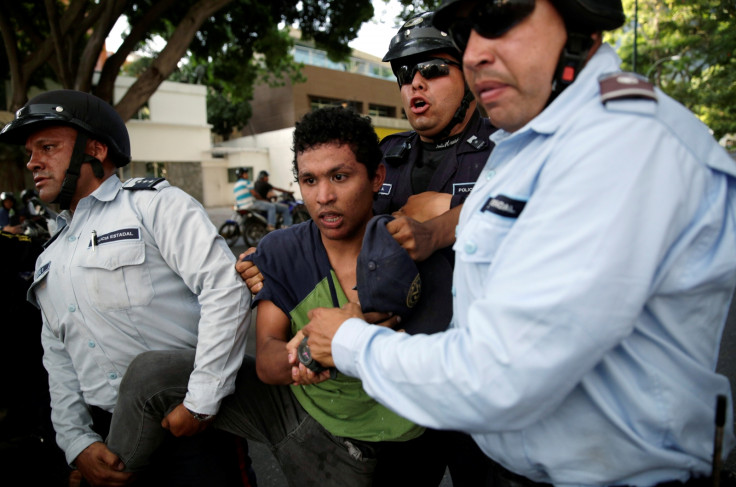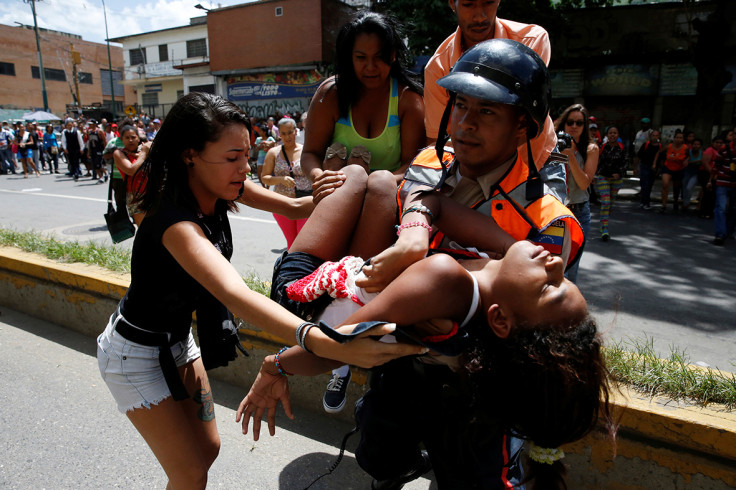Lynch law engulfs socialist Venezuela as offenders are hunted down by angry mobs
Deaths by lynching have increase six times in the past year as the country struggles with widespread crime and hunger.
One to three people each week die at the hands of angry crowds in Venezuela, as authorities struggle to contain an economic crisis that is prompting more people to commit crimes as well as to take justice into their own hands.
The data comes from the annual report of the Venezuelan Observatory of Violence (OVV), which monitors crime in the country. The observatory estimated that mob killings have become a generalised phenomenon across the country, with 126 deaths reported in 2016 versus 20 last year.
According to the observatory, which is formed of a group of academics who compile data from police sources and the media, lynching used to be quite rare and only against people suspected of brutal crimes such as murderers or rapist. Now, those accused of minor offences are more likely to die at the hands of angry mobs.
"Due to being repeated victims of crime for more than a decade, and the feeling of not being protected, many people have decided to take justice into their own hands," the OVV commented, citing research showing that only around 10% of the population considers police forces and the justice system trustworthy.
That is not to say that police is being idle. Data from the interior ministry reported by the Insight Crime foundation, an organisation founded by two journalists focusing on organised crime in the Latin America, estimated that roughly 15 people a day die at the hands of the police, roughly one person every hour and a half.
These are usually deaths associated with clashes between supposed criminals and security forces, which are registered under the technical classification of, "resistance against authorities." During the first nine months of 2016, a total of 4,156 deaths were registered under this classification.

Crime remains an everyday concern for Venezuelans, who have long been facing some of the highest murder rates in the world due to widespread availability of guns, inadequate policing and pervasive corruption. The recent economic crisis aggravated the situation, particularly in poorer areas that are run by armed gangs.
According to the OVV, the worsening economic situation and ongoing food crisis has also led to the "widespread occurrence of violence due to hunger", a new phenomenon for a country where theft was historically motivated by stealing branded consumption goods such as mobile phones or trainers. Those who steal food products are often moved to do occasionally, when they do not have enough money to pay for it.
There are also professional criminals who increasingly organise collective robberies of grocery shops and food transport vehicles. Food distribution trucks are now guarded by military personnel, although an investigation by the Associated Press revealed that instead of fighting hunger, the military is profiting from it, running illegal markets to buy food supply at inflated prices.

Opposition leader Henrique Capriles blamed the government for failing to improve the situation. "The government has spent 17 years without resolving the problem," he said during a visit on 28 December to rescue services in the Miranda state, as quoted by Reuters. He added: "Violence is killing the future of our country."
The OVV estimated a total 28,479 homicides have occurred this year in Venezuela, more than three killings per hour, for an average of 91.8 every 100,000 inhabitants. These numbers make Venezuela the world's second most murderous nation, after El Salvador.
According to Reuters, President Nicolas Maduro's socialist government rejects the OVV figures as inflated for political reasons and the most recent official murder rate, for 2015, estimated 58 deaths per 100,000 inhabitants. Another researcher disagreed with the widely cited OVV research and its methodology, but also placed the 2015 figure above that of the government's, at 70 murders per 100,000 people.
© Copyright IBTimes 2025. All rights reserved.






















